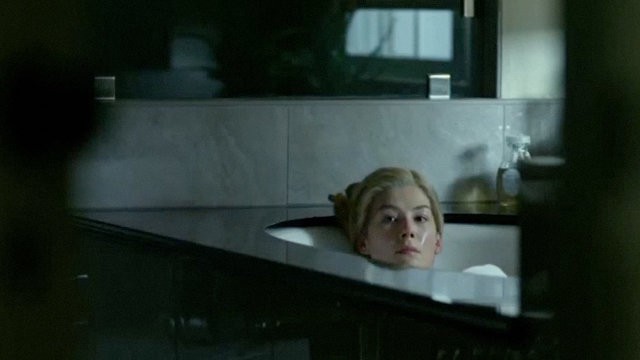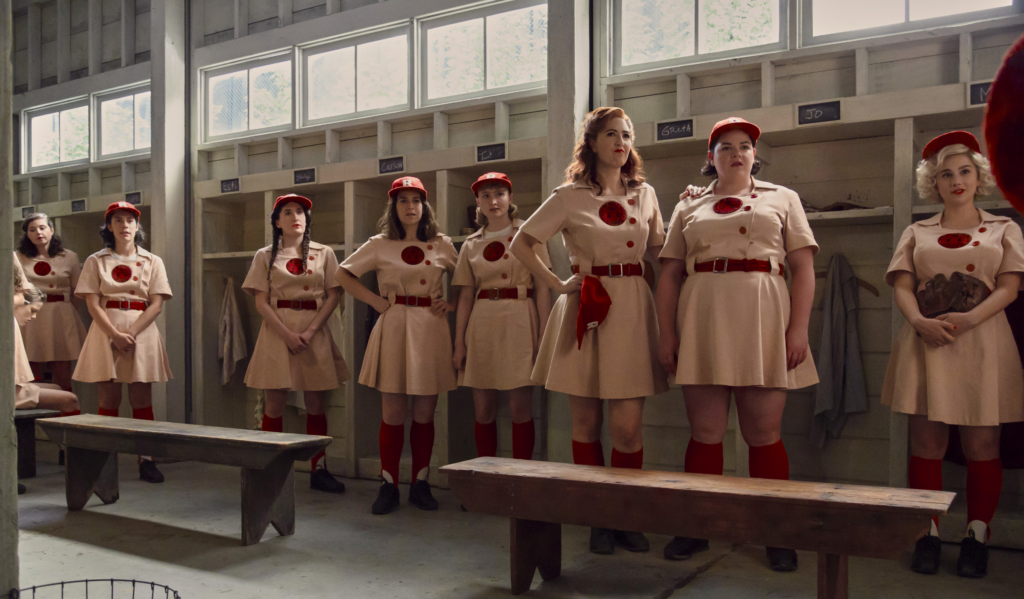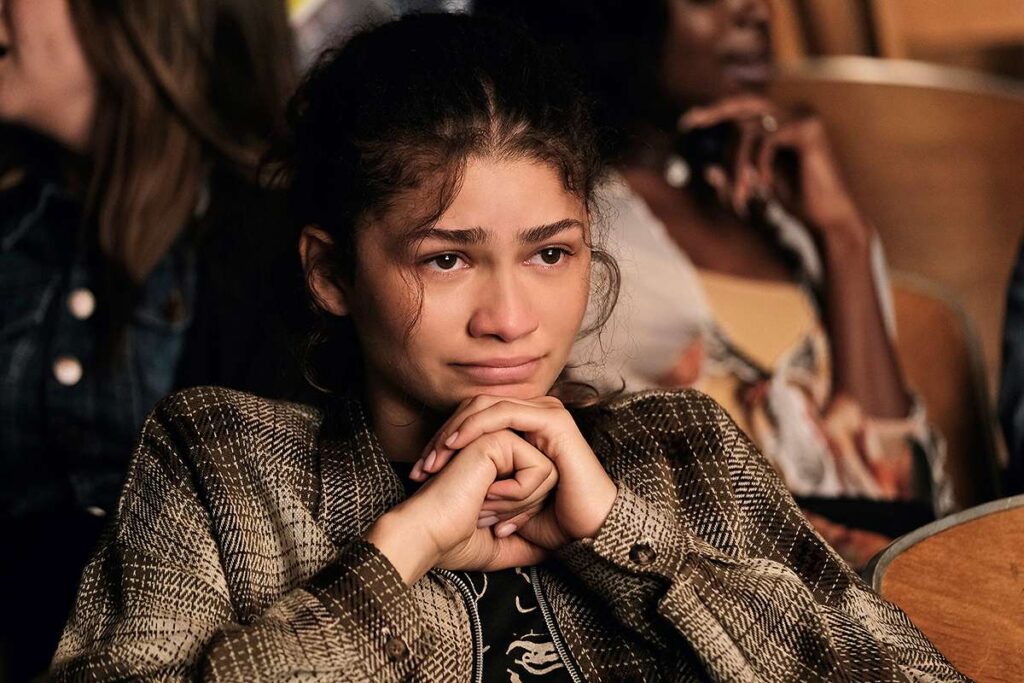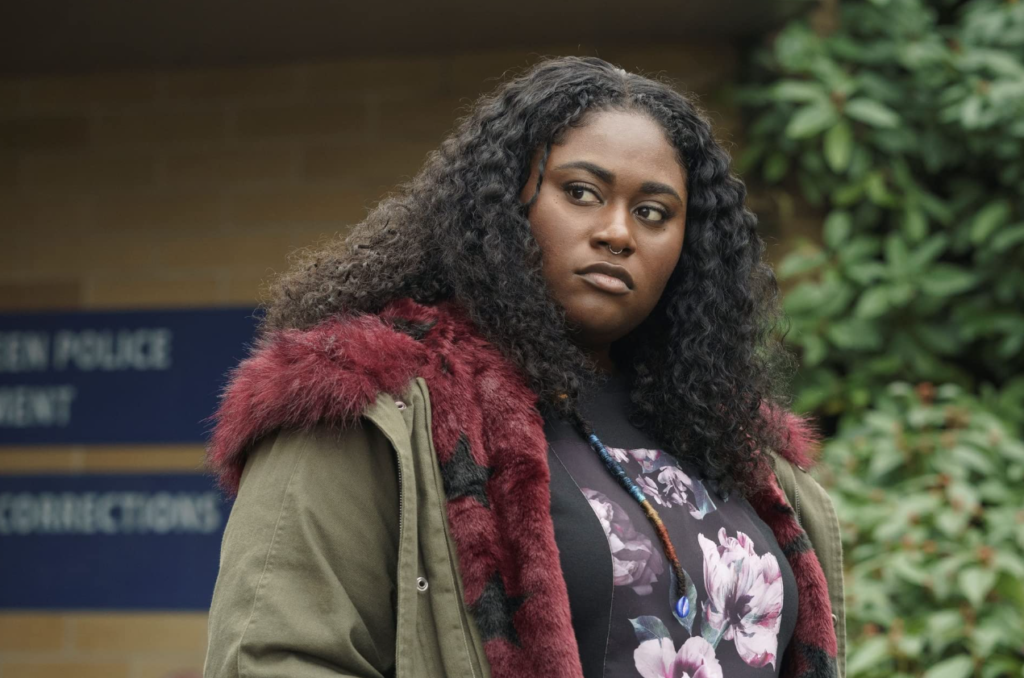Much of the suspense over Gone Girl, at least among the film journalists who were the first to witness David Fincher’s latest thriller at the New York Film Festival, has not revolved around any mysteries concerning its vanishing lead character, but instead its potential as an awards-season contender.
Considering that the film based on the literary sensation by author Gillian Flynn (who also wrote the script) is a cold-blooded social commentary dressed as a criminal procedural that ends up performing a nasty autopsy on a rancid marriage, it just might be the right provocative entertainment for those hungry for smart adult fare.
But, ultimately, it will all come down to one thing: How audiences feel about the girl. Namely, Amy Dunne, a trust-fund daughter of privilege who inspired a series of children’s books, a gorgeous, blonde Ivy Leaguer and a product of post-recession times whose sense of self-entitlement knows few bounds. If audiences — especially couples — start engaging in debate even before they leave their theater seats, Gone Girl might just take off. And the Academy will find that hard to ignore.
Not that there aren’t other hurdles standing in the way of box-office receipts and awards glory before it opens in theaters this Friday.
One, the film is based on a bestseller and, therefore, has to compete with the version of the story that is already playing in the imaginations of millions of readers.
The original fans of the novel — the majority of which were women — will play a big role in deciding whether Ben Affleck is the perfect Nick Dunne, the deeply flawed beta male who is suspected of killing his wife after she suddenly vanishes. Or if Rosamund Pike strikes just the right balance between avenging angel and diabolical schemer as Amy, whose not-exactly-careless trail of left-behind clues could seal Nick’s fate.
Two, Gone Girl is a suspense thriller, a less-than-heartwarming genre that has gotten little love over the years from Academy voters, especially when choosing what goes home with the Best Picture trophy. The voters tend to go for uplifting and honorable, as with last year’s historical biopic 12 Years a Slave, rather than downbeat and dirty, such as the double-crossing con artists in the crime-driven American Hustle or the debauched stockbrokers in The Wolf of Wall Street.
Then again, not all thrillers, which come in several varieties, are created equal where Oscar voters are concerned. Among the few nominated as Best Picture in the past, there have been a crime thrillers (2006’s The Departed, which won Best Picture for the long-denied Martin Scorsese, and 2007’s No Country for Old Men, which triumphed for the equally unrewarded Coen brothers), action thrillers (1993’s The Fugitive), supernatural thrillers (1999’s The Sixth Sense and 1973’s The Exorcist), and at least one hybrid thriller that combined horror and crime (1991’s The Silence of the Lambs, probably Oscar’s favorite thriller with wins in the top five categories: Picture, Actress, Actor, Director and Adapted Screenplay).
In a category all by himself, however, is Alfred Hitchcock. Consider that the master of the suspense thriller, whose prolific career began in the silent era and lasted until the mid-1970s, never won a directing Oscar despite five nominations — including one for 1960’s Psycho, one of the most enduring and influential spine-tinglers of all time.
Sir Alfred did, however, have one winner among his five best-picture nominees: 1940’s Rebecca. Which, oddly enough, was a best-seller written by a female author (Daphne Du Maurier) about a young bride living under the shadow of her widower husband’s first wife, Rebecca, whose death involved murky circumstances. It is based on a novel (one that has never gone out of print and is still beloved by the masses) about a troubled relationship bedeviled by conniving outside influences and a possible murder — not unlike Gone Girl.
Ultimately, both nominations and ticket sales for Gone Girl are largely dependent one thing. The movie and its “Girl” must become part of the cultural discourse. Not by way of pontificating Oscar pundits, but by average moviegoers and outlets that feed off of such discussions: Twitter and Facebook, late-night talk shows, daytime chat fests, 60 Minutes and cable TV news channels. Which, to be clear, is exactly the kind of tabloid-y media circus that envelops the coverage of Amy’s disappearance and ends up pointing the finger at Nick in Gone Girl.
There is at least one sign that Gone Girl is on the right track. It is difficult to discuss any details without treading on spoiler territory. This issue might cause most ticket buyers to head to the multiplex the first weekend before all the juicy stuff leaks out all over the Internet. Remember The Crying Game, another sexually charged, emotionally twisted thriller whose advertising campaign begged us not to spoil its secret? The 1992 British indie film went on to collect six Oscar nominations (including Best Picture, Best Director, and a win for its script) and established Neil Jordan as a filmmaker to reckon with. Like Gone Girl, it also concerned matters of the heart and acts of deception — including the very nature of its supposed heroine.
Of course, Fincher — who has been nominated for Best Director twice with 2008’s The Curious Case of Benjamin Button and 2010’s The Social Network — already has a reputation for knowing how to strike a nerve with commercial material, especially when gender-propelled conflict is involved. There is the rocky union between Brad Pitt’s detective and wife Gwyneth Paltrow in 1995’s Seven. And the three male burglars hassling single mom Jodie Foster and her daughter in 2002’s Panic Room. The confrontational date that inspired the creation of Facebook in The Social Network. And the erotic tension between the anti-social bisexual female hacker and the traditionally macho writer in 2011’s The Girl With the Dragon Tattoo.
Gone Girl does a solid job of stirring the “he said, she said” pot with Amy and Nick both providing their own on-screen accounts of their rotting union. But to truly join the Oscar conversation, the film ultimately needs to be the 21st-century answer to 1987’s Fatal Attraction, whose cheating husband and single female stalker, which were so unforgettably portrayed by Michael Douglas and Glenn Close, delivered terror on an operatic scale that struck a little too close to home for many men in the footloose 1980s.
How deep is Fatal Attraction — which managed to collect six Oscar nominations including Best Picture — imbedded in our psyches? Its title remains a synonym for a fling gone wrong, while the mere mention of the plot device of a boiled bunny can still cause shivers.
Basically, if Gone Girl follows Fatal Attraction’s lead as the personification of the phrase “Hell hath no fury like a woman scorned,” it has a good chance of catching Oscar’s eye.
Previously: Review: Rosamund Pike Gives an Oscar-Worthy and Career-Making Performance in Gone Girl







